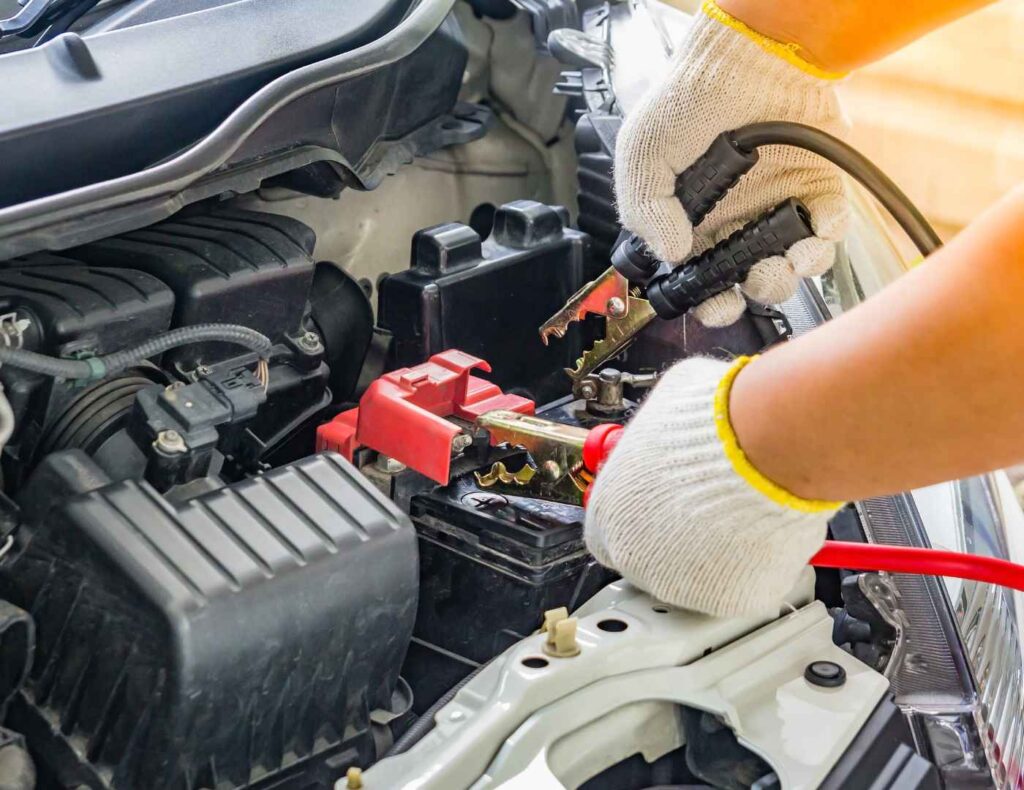Car Battery Not Holding Charge
Introduction: When Your Car Battery Fails You
It’s a scenario every driver dreads—you turn the key, but the engine barely grumbles before falling silent. The dashboard lights flicker like dying embers, and suddenly you realize your car battery isn’t holding a charge. This issue can be more than an inconvenience; it’s often a symptom of deeper electrical troubles that demand attention before they strand you again.

Understanding How a Car Battery Works
The Essential Role of the Car Battery
Your car’s battery is its beating heart—supplying the electrical energy required to start the engine, illuminate the dashboard, and power accessories. It stores energy as chemical potential and releases it as electrical current whenever your ignition key turns.
How Charging and Discharging Occur
Once the engine is running, the alternator replenishes the battery by converting mechanical energy into electrical energy. However, when this delicate balance of charging and discharging falters, the battery’s reserve diminishes rapidly. Even a minor glitch in this cycle can render the battery incapable of holding its charge.
Common Reasons a Car Battery Won’t Hold a Charge
Parasitic Drains and Hidden Electrical Leaks
Modern vehicles brim with electronics that never fully shut off. Faulty wiring, a stuck relay, or even a trunk light that refuses to extinguish can silently drain the battery overnight. These parasitic draws are stealthy and often go unnoticed until your car refuses to start on a cold morning.
Corroded Terminals and Poor Connections
Corrosion on the battery terminals acts like cholesterol in arteries—blocking the flow of energy. Over time, moisture and oxidation form a crust of white or bluish residue on the terminals, disrupting the connection between the battery and the electrical system. A poor connection can make it seem as though the battery is weak when, in fact, the charge simply isn’t being delivered efficiently.
Faulty Alternator or Charging System Issues
If your alternator is failing, the battery won’t receive sufficient power to recharge after starting the engine. Dim headlights, flickering dashboard lights, or a whining noise from the engine bay may all signal alternator malfunction. Without timely repair, this will inevitably leave your battery depleted.
Extreme Weather and Battery Degradation
Both scorching summers and frigid winters can wreak havoc on a car battery. High temperatures accelerate the evaporation of vital fluids, while freezing conditions thicken engine oil and make starting more strenuous. These seasonal stressors shorten the battery’s chemical lifespan, weakening its ability to hold charge.
Aging Batteries and Natural Wear
No battery lasts forever. Over time, internal plates corrode and active materials degrade, reducing capacity. On average, most car batteries last between three to five years, depending on climate and driving habits. Beyond this window, replacement becomes the only reliable remedy.
Diagnosing the Problem
Simple At-Home Checks
Begin with a visual inspection. Look for corrosion, loose cables, or bulging sides on the battery casing. Check that all lights and accessories are off before leaving the car parked. If the battery drains overnight despite precautions, a parasitic draw is likely.
You can also use a multimeter to measure voltage. A healthy, fully charged car battery should read around 12.6 volts with the engine off. Anything significantly lower suggests undercharging or internal failure.
Professional Diagnostic Tools and Testing
For a more thorough analysis, technicians use load testers and conductance analyzers to evaluate battery health under simulated conditions. They can also measure alternator output and detect voltage leaks within the vehicle’s electrical system. This precision testing helps identify whether the battery itself or another component is the culprit.
Effective Solutions for a Battery That Won’t Hold Charge
Cleaning and Maintaining Connections
Start by removing corrosion from the terminals using a wire brush and a solution of baking soda and water. After cleaning, apply a thin layer of dielectric grease to prevent future buildup. Ensure all clamps are snug and that cables are free of fraying or damage.
Testing and Replacing the Alternator
If diagnostics reveal poor charging, the alternator may need repair or replacement. A functioning alternator should produce between 13.8 and 14.4 volts while the engine runs. Anything less means the battery isn’t being adequately recharged and will continue to fail prematurely.
Replacing an Old or Defective Battery
When age or damage is the cause, replacement is the only solution. Choose a battery rated for your vehicle’s specifications and local climate conditions. Modern absorbed glass mat (AGM) batteries offer superior longevity and vibration resistance compared to traditional flooded models.
Preventive Maintenance Habits
Small habits extend battery life significantly:
Drive regularly to keep the charge cycle healthy.
Avoid short trips that don’t allow the alternator to replenish the battery.
Keep terminals clean and connections tight.
Turn off lights, chargers, and accessories before shutting down.
Schedule seasonal battery inspections, especially before winter.
When to Seek Professional Help
If your car continues to lose charge despite maintenance, it’s time for professional intervention. Persistent issues often indicate electrical system faults such as wiring shorts, defective relays, or even onboard computer malfunctions. Skilled technicians have the diagnostic equipment to isolate the problem swiftly, saving you both time and frustration.
Professional workshops can also perform battery load tests under realistic conditions, ensuring your replacement choice aligns with your vehicle’s needs and usage patterns.
Conclusion: Protecting Your Vehicle’s Power Source
A car battery that refuses to hold charge is more than a mechanical inconvenience—it’s a warning. Left unaddressed, it can cascade into costly repairs, stranded commutes, and unnecessary stress. Understanding the causes and applying timely maintenance will not only preserve your battery but safeguard your vehicle’s entire electrical ecosystem.
For lasting reliability, schedule regular battery inspections and system diagnostics with a trusted auto repair specialist. After all, a car’s heartbeat depends on the steady rhythm of a healthy, fully charged battery.

